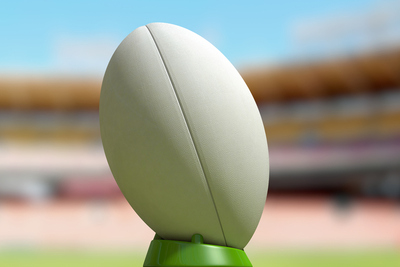
The Super League the pinnacle of club rugby league within the UK. The league, made up of 12 teams, has been running since 1996 and in that time, has been able to lure some of the biggest names within the sport from around the world.
The regular season is relatively short compared to the likes of football and even rugby union, running from January through to September, before then splitting off into a play-off system to qualify for the Grand Final which is usually held in October. As the league has progressed it’s been able to attract bigger and better sponsors, with current sponsors that of sports betting behemoth, Betfred, at the helm.
Super League has had a long standing broadcasting deal with Sky Sports, who have televised matches since Super League I.
- In This Article:
- Winners
- Format
- Statistics
- Man of Steel
- History
Super League Grand Final Winners
| Year | Champion | Runner-Up | Score | Man of the Match |
|---|---|---|---|---|
| 2023 (28) | Wigan Warriors | Catalans Dragons | 10-2 | Jake Wardle, Wigan |
| 2022 (27) | St Helens | Leeds Rhinos | 24-12 | Jonny Lomaz, St Helens |
| 2021 (26) | St Helens | Catalans Dragons | 12-10 | Kevin Naiqama, St Helens |
| 2020 (25) | St Helens | Wigan Warriors | 8-4 | James Roby, St Helens |
| 2019 (24) | St Helens | Salford Red Devils | 23-6 | Luke Thompson, St Helens |
| 2018 (23) | Wigan Warriors | Warrington Wolves | 12-4 | Stefan Ratchford, Warrington |
| 2017 (22) | Leeds Rhinos | Castleford Tigers | 24-6 | Danny McGuire, Leeds |
| 2016 (21) | Wigan Warriors | Warrington Wolves | 12-6 | Liam Farrell, Wigan |
| 2015 (20) | Leeds Rhinos | Wigan Warriors | 22-20 | Danny McGuire, Leeds |
| 2014 (19) | St Helens | Wigan Warriors | 14-6 | James Roby, St Helens |
| 2013 (18) | Wigan Warriors | Warrington Wolves | 30-16 | Blake Green, Wigan |
| 2012 (17) | Leeds Rhinos | Warrington Wolves | 26-18 | Kevin Sinfield, Leeds |
| 2011 (16) | Leeds Rhinos | St Helens | 32-16 | Rob Burrow, Leeds |
| 2010 (15) | Wigan Warriors | St Helens | 22-10 | Thomas Leuluai, Wigan |
| 2009 (14) | Leeds Rhinos | St Helens | 18-10 | Kevin Sinfield, Leeds |
| 2008 (13) | Leeds Rhinos | St Helens | 24-16 | Lee Smith, Leeds |
| 2007 (12) | Leeds Rhinos | St Helens | 33-6 | Rob Burrow, Leeds |
| 2006 (11) | St Helens | Hull FC | 26-4 | Paul Wellens, St Helens |
| 2005 (10) | Bradford Bulls | Leeds Rhinos | 15-6 | Leon Pryce, Bradford |
| 2004 (9) | Leeds Rhinos | Bradford Bulls | 16-8 | Matt Diskin, Leeds |
| 2003 (8) | Bradford Bulls | Wigan Warriors | 25-12 | Stuart Reardon, Bradford |
| 2002 (7) | St Helens | Bradford Bulls | 19-18 | Paul Deacon, Bradford |
| 2001 (6) | Bradford Bulls | Wigan Warriors | 37-6 | Michael Withers, Bradford |
| 2000 (5) | St Helens | Wigan Warriors | 29-16 | Chris Joynt, St Helens |
| 1999 (4) | St Helens | Bradford Bulls | 8-6 | Henry Paul, Bradford |
| 1998 (3) | Wigan Warriors | Leeds Rhinos | 10-4 | Jason Robinson, Wigan |
Pre-Grand Final Super League Winners
For the first two Super League seasons, the champions were the team finishing top of the table after each team had played each other twice, once at home and once away. There was still and end of season play-off to win what was known as the Premiership Trophy. In Super League I, this was between the top four teams playing semi-finals and a final. In Super League II, all 12 teams competed in the play-offs.
| Year | Champion | Premiership Trophy |
|---|---|---|
| 1997 (2) | Bradford Bulls | Wigan Warriors |
| 1996 (1) | St Helens | Wigan Warriors |
Super League XXIX Format
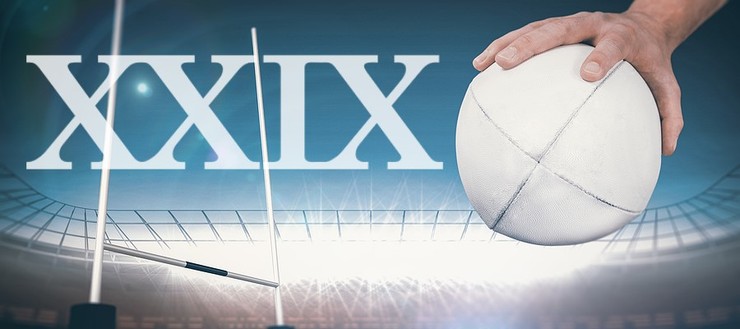
The Super League has seen many changes of format over the years. The regular season now consists of 27 games including the Magic Weekend. The play-offs for the Grand Final now consist of the top 6 teams. The qualifiers for the bottom 4 sides were dropped after 2019 with the side finishing bottom of the Super League relegated and replaced by the side winning the Championship Play-Off Final.
Regular Season
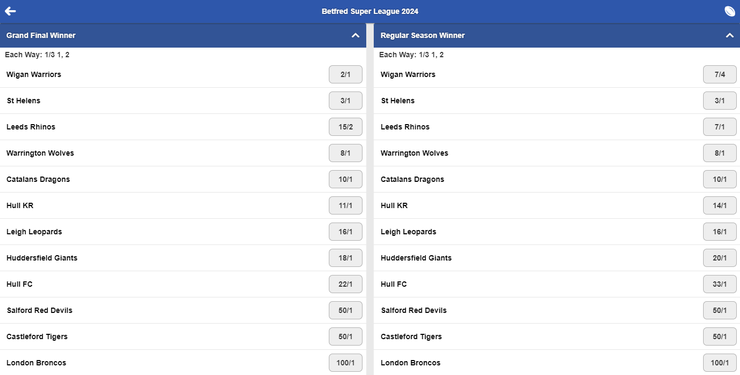
The main 22 regular season games are pretty straight forwarded in that the 12 teams play each other twice, one home and one away. In addition to these fixtures there is also 5 additional fixtures, 2 home, 2 away, plus the magic weekend match. The fixtures are known as loop fixtures and are based on the finishing positions from the previous season with odds playing odds and evens playing evens. This means a 27 game regular season.
Teams will pick up 2 points for a win, 1 point for a draw and 0 for a loss. Should a game end in a draw after 80 minutes, a further 10 minutes are played, with the first team to score a try, a penalty kick or a drop goal, the winners. If the scores remain level the match is drawn. This is known as golden point extra time.
Magic Weekend
Magic Weekend is a concept that has been employed by the Super League in order to try and promote the game a little bit in areas where the sport isn’t as popular as it could be. The concept started in 2007, first being launched in the Millennium stadium, Cardiff, before then moving to Edinburgh, back to Cardiff and now residing at St James’ Park, Newcastle.
The Magic Weekend will host a full round of fixtures over the course of a weekend, often with three games being played on the Saturday and three games being played on the Sunday. Due to the size of grounds such as St James’ Park, it means that over 50,000 spectators could potentially watch each match, exposing the sport to a much larger ground capacity than the majority of Super League grounds.
A few attempts at finding the right time of season to play the Magic Weekend have been trialled, but now it usually falls somewhere around mid-season. This means that it falls outside of the football season for use of bigger stadiums and often means the weather is a little better, encouraging fans to attend in their masses.
The Magic Weekend fixtures are based on the final standings from the previous season.
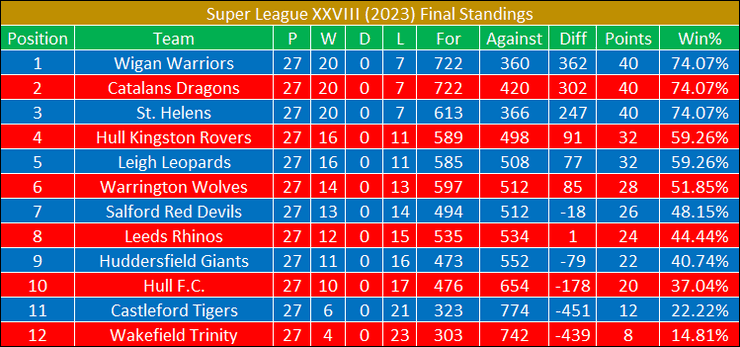
The first placed team from the previous season’s final standings will play the third, second plays fourth, fifth plays seventh, sixth plays eighth, ninth plays eleventh and tenth plays the team promoted from the Championship.
The 2024 Magic Weekend takes place at Elland Road in Leeds, home stadium of Leeds United F.C. Fixtures will be played on Saturday 17th and Sunday 18th August.
Super League 2024 Magic Weekend Fixures
| Fixture | Date |
|---|---|
| Hull F.C. v London Broncos | Sat 17th Aug |
| Wigan v St Helens | Sat 17th Aug |
| Warrington v Leeds | Sat 17th Aug |
| Leigh v Salford | Sun 18th Aug |
| Catalans v Hull KR | Sun 18th Aug |
| Huddersfield v Castleford | Sun 18th Aug |
Play-Offs
Since 2020, the play-off system has involved six teams, the teams finishing first and second in the table progressed straight to the semi-finals, with third playing sixth and fourth playing fifth for the other two positions.
Super League 2024 Play-Off System
| Round | Name of Game | Contestants |
|---|---|---|
| 1 | Elimination Play-Off 1 | 4th vs 5th |
| Elimination Play-Off 2 | 3rd vs 6th | |
| 2 | Semi-Final 1 | 2nd vs Elimination 1 Winner |
| Semi-Final 2 | 1st vs Elimination 2 Winner | |
| 3 | Grand Final | Semi-Final 1 Winner vs Semi-Final 2 Winner |
The play-off system which decided the two teams contesting the Grand Final in 2019 followed the Page playoff system. It involved the top 5 teams in the table after the regular season had finished, with the team finishing first, the League Leaders Shield winners, progressing straight to the first semi-final.
The play-off involved a total of 5 games over three rounds. With an eliminator and qualifying game in round one. A second eliminator and the first semi-final in round 2. Finally, round three saw a second semi-final. The Grand Final was contested between the two semi-final winners.
Super League 2019 Page Play-Off System
| Round | Name of Game | Contestants |
|---|---|---|
| 1 | Eliminator Game 1 | 4th vs 5th |
| Qualifier Game | 2nd vs 3rd | |
| 2 | Eliminator Game 2 | Qualifier Game Loser vs Eliminator Game 1 Winner |
| Semi-Final 1 | 1st vs Qualifier Game Winner | |
| 3 | Semi-Final 2 | Semi-Final 1 Loser vs Eliminator Game 2 Winner |
| 4 | Grand Final | Semi-Final 1 Winner vs Semi-Final 2 Winner |
Grand Final
The Grand Final is the pinnacle of the league and it award the teams the trophy of Super League winners for that season. Since 1998 the game has been played at Old Trafford, which is very much known as the home of rugby league, largely from its proximity to a high number of Super League clubs.
Whilst a trophy is awarded to the regular season league winner, the real accolade is being crowned as Grand Final winners. In 2015 the largest attendance ever at a Grand final was recorded of 73,512. The man of the match in the Grand Final is awarded the Harry Sunderland Trophy.
Championship Play-Offs & Million Pound Game
Much like the Super League, the second tier Rugby League Championship also saw changes for the 2019 season. In previous seasons the Qualifiers saw the bottom 4 Super League and top 4 Championship teams competed for the four Super League paces. In 2019, the top 5 Championship sides will contest a Page playoff system exactly like that of the Super League.
From 2020, the Championship adopted the same playoff system as the Super League, with the top two sides entered straight into the semi finals, with eliminators for the sides finishing 2nd to 6th.
This will produce a play-off final which was is labelled the ‘Million Pound Game’ between 2015 and 2018 because that’s how much it would be worth to either club to be in the Super League over the Championship.
Championship Play-Offs: 2015 – 2023
| Year | Champions | Runner-Up | Score | Venue |
|---|---|---|---|---|
| 2023 | London Broncos | Toulouse Olympique | 18-14 | Stade Ernest-Wallon, Toulouse |
| 2022 | Leigh Centurions | Batley Bulldogs | 44-12 | Leigh Sports Village |
| 2021 | Toulouse Olympique | Featherstone Rovers | 34-12 | Stade Ernest-Wallon, Toulouse |
| 2020 | Season cancelled | – | – | – |
| 2019 | Toronto Wolf Pack | Featherstone Rovers | 24-9 | Lamport Stadium, Toronto |
| 2018 | London Broncos | Toronto Wolf Pack | 4-2 | Lamport Stadium, Toronto |
| 2017 | Catalans Dragons | Leigh Centurions | 26-10 | Leigh Sports Village |
| 2016 | Salford Red Devils | Hull KR | 19-18 | Craven Park, Hull |
| 2015 | Wakefield Trinity | Bradford Bulls | 24-16 | Belle Vue, Wakefield |
Statistics
Over the course of the 25+ years that the Super League has been running, there have only ever been 4 winners of the Grand Final trophy; Leeds Rhinos, St Helens, Wigan Warriors and Bradford Bulls.
St Helens have the most Super League Grand Final wins with 9, ahead of Leeds Rhinos with 8. The Saints have also been runners-up on five occasions compared, the Rhinos three. They are followed by Wigan with 6 wins and Bradford who are 3-time winners.
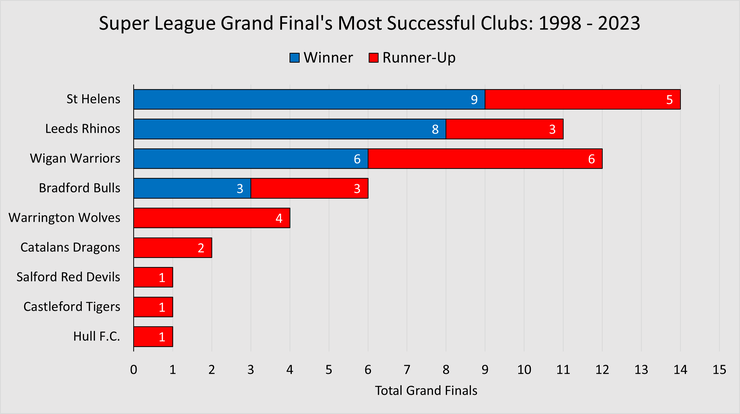
As of the conclusion of the 2023 season, St Helens are the teams who have been able to reach the Grand Final on more occasions than the rest with 14 appearances. Leeds have a 73% success rate in finals, way ahead of St Helens on 64%, and Wigan and Bradford both with a 50% record. Interestingly, St Helens’ 5 loses all come in consecutive years from Super League XII through to super League XVI, a stat that their fans will not want to be reminded of.
Man of Steel
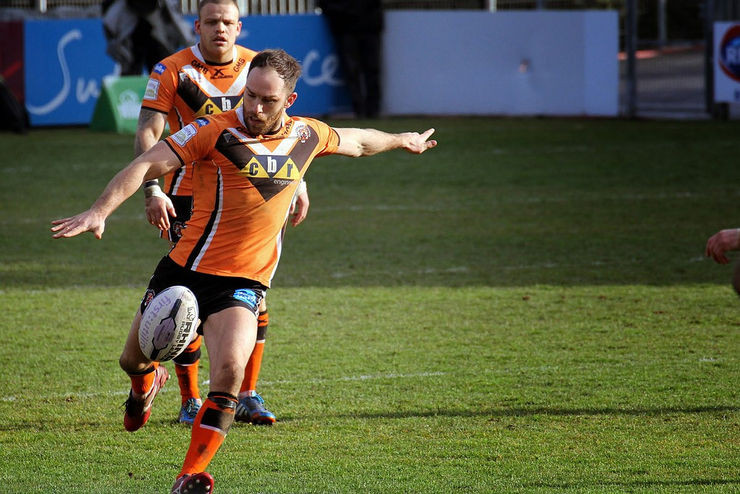
The Man of Steel Award has been running since 1977 and is widely regarded as the highest individual honour that a player can receive within the game. The award often overlooks players who are club captains or who have scored the most points within the league and instead look for players who have gone above and beyond for their team throughout the season.
These guys aren’t necessarily making all the headlines, but without them in a team, then that team would suffer as a result. It’s also worth noting that whilst a British award for the Super League, there have been both Australians and New Zealanders win the award, highlighting that anyone can pick it up.
In 2013 the sad passing of Steve Prescott, a former England player, caused a petition of over 12,000 signatures to get the trophy renamed after him. The official title from 2014 onwards is the Steve Prescott Man of Steel.
The award is presented at the end of season gala and is voted for by both players and the rugby league press. There have only ever been four multiple winners of this award, who are Ellery Hanley (3), Sam Tomkins (2), Paul Scunthorpe (2) and Andy Farrell (2).
Man of Steel Award Winners: 2009 – 2023
| Year | Player | Club | Nationality |
|---|---|---|---|
| 2023 | Bevan French | Wigan Warriors | Australian |
| 2022 | Brodie Croft | Salford Red Devils | Australian |
| 2021 | Sam Tomkins | Catalans Dragons | English |
| 2020 | Paul McShane | Castleford Tigers | English |
| 2019 | Jackson Hastings | Salford Red Devils | Australian |
| 2018 | Ben Barba | St Helens | Australian |
| 2017 | Luke Gale | Castleford Tigers | English |
| 2016 | Danny Houghton | Hull FC | English |
| 2015 | Zak Hardaker | Leeds Rhinos | English |
| 2014 | Daryl Clark | Castleford Tigers | English |
| 2013 | Danny Brough | Huddersfield Giants | Scottish |
| 2012 | Sam Tomkins | Wigan Warriors | English |
| 2011 | Rangi Chase | Castleford Tigers | New Zealand |
| 2010 | Pat Richards | Wigan Warriors | Australian & Irish |
| 2009 | Brett Hodgson | Huddersfield Giants | Australian |
History

The origins of the league came from the head of BskyB, Rupert Murdoch. In the mid-nineties it was Murdoch who was at logger heads with Australian networks about televisions rights for rugby league both within the UK and in Australia. As a way to try and overcome this, he decided that the UK needed an injection of both money and exposure, which he did via his TV channels and also incredible wealth.
Murdoch approached the top clubs in the top tier in 1995 and by 1996 the Super League was born, with a promise for increased TV coverage and as a result, more money for each club. Twelve teams signed the agreement and also agreed to a seasonal switch, from winter to summer to ensure they weren’t competing for air time with the likes of football and even the more popular rugby union.
Super League I (1996) Teams & Final Standings
| Pos. | Team | Points | Stadium | Sponsor |
|---|---|---|---|---|
| 1st | St Helens | 40 | Knowsley Road | McEwans’s |
| 2nd | Wigan | 39 | Central Park | Norweb |
| 3rd | Bradford | 34 | Odsal Stadium | Compaq |
| 4th | London Broncos | 25 | The Valley, Charlton | Foster’s |
| 5th | Warrington | 24 | Wilderspool Stadium | Greenalls |
| 6th | Halifax | 21 | Thrum Hall | Marshalls |
| 7th | Sheffield | 20 | Don Valley Stadium | None |
| 8th | Oldham | 19 | Watersheddings | Vaux Samson |
| 9th | Castleford | 18 | Wheldon Road | Hicksons |
| 10th | Leeds | 12 | Headingley | Tetley’s |
| 11th | Paris Saint-Germain | 7 | Stade Sébastien-Charléty | None |
| 12th | Workington | 5 | Derwent Park | Jennings |
Up until 2002 the league saw very few changes and whilst there were teams that were bidding to get in, few were able to offer the teams needed and facilities to compete with the already established teams. Many mergers were discussed, but few actually went through. Disgruntled teams from the lower divisions were frustrated at the ‘closed door’ system of the Super League, prompting a change in 2002.
The experiment to include a team from Paris had ultimately failed, with clubs stating that the increased travel time to games was frustrating. So, in 2002 they were axed and instead the Super League would include both promotion and relegation for the first time.
But, the need for a French team within the league grew and grew, before in 2006 it was announced that Catalan Dragons, from Perpignan, were to join the league. This meant that to accommodate them the league would have to relegate 2 teams, with the previous season only 1 would have gone down, much to the dismay of Widnes, who were unfortunately the sacrificial lamb.
In 2005, it was announced that new licensing structure would be coming into play. This was to make sure that clubs were doing as much off the field as they were on the field. They didn’t want to make the league a closed shop again, but they wanted the teams that did come up and even the exiting teams, to meet a certain level that was expected of any professional sports club.
These criteria include the likes of stadium, finances, facilities and the development of youth players, amongst other things, in order to make sure that these clubs are up to scratch. The license would grade each club from A, B to C. A and B were in and C needed improvement. Licenses were issued for up to 3 years and then they would be reviewed to make sure that clubs weren’t slipping but also to allow ambitious lower league teams the chance to play top-flight rugby league.
The first licensing period came in June 2008 and this meant that the league was to be expanded to 12 from 14 teams, with Salford and Celtic Crusaders being include, the latter being the first welsh team to play Super League. The second licensing period wasn’t until 2012, when it was decided that Widnes would be re-joining the league after meeting all criteria. There were actually 4 teams that were eligible to apply, but after meetings with the RFL, the other three all withdrew citing finances as the main reason why they didn’t want to move up a league.
For the 2015 season a major reshuffle once again took place, with the inclusion of the Super 8. The concept of the Super 8 and the Qualifiers means that there is something to play for each team throughout the season. Features such as the Magic Weekend and the playoffs are all aspects that are helping the Super League grow.
As mentioned above, the format was altered again in 2019 with the Super 8’s and qualifiers scrapped, replaced by a 5 teams play-off system for both the Grand Final and promotion play-off. This lasted just one season with a six team playoff introduced from 2020.
Leeds Rhinos
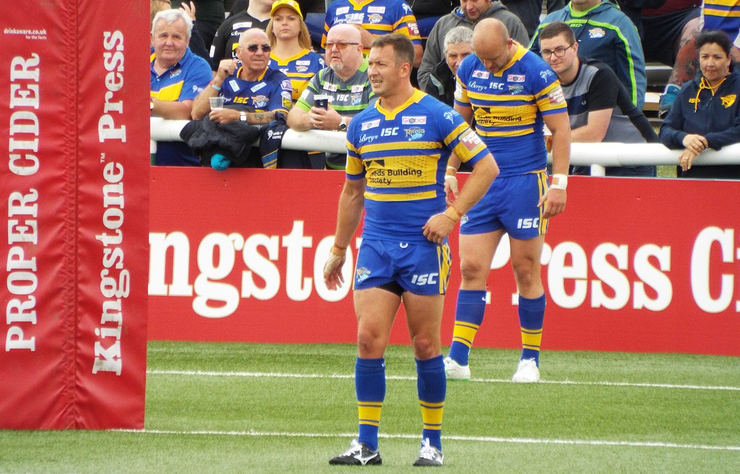
Leeds Rhinos are the second most successful team in the Super League, with eight league titles to their name. The club has been steeped in history since they first opened their doors back in 1870 and with it have enjoyed success both on and off the field.
The club has been lucky in that they have been able to enjoy some of the best players to have played the game, including the likes of Danny McGuire, Rob Burrow, Kevin Sinfield, Matt Diskin, Terry Clawson and Bev Risman, to name just a few. They’ve been able to offer up four players for the Man of Steel awards over the years as well – David Ward, Gary Scofield, Iestyn Harris and Zak Hardaker.
Wigan Warriors
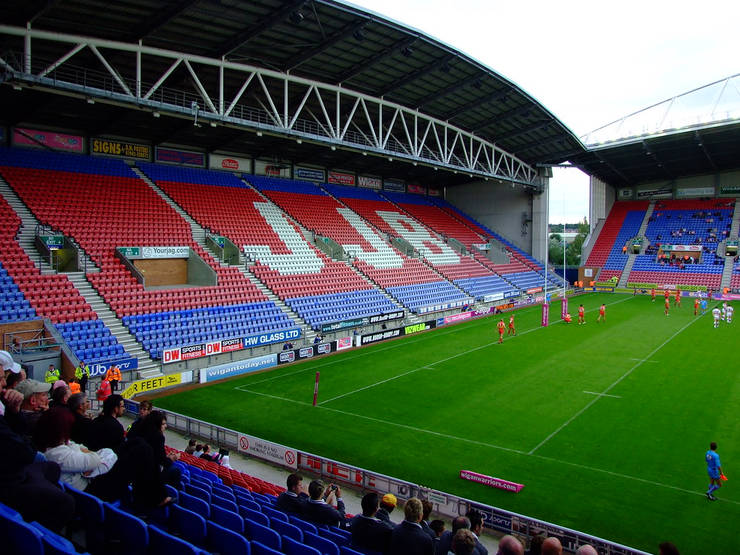
Wigan are the founding members of the Northern Rugby Football union and have been about since 1872. They’ve been able to win six Super League Grand Finals, with 23 League championships in total across both Super League and the top ranked league in England. This means Wigan have won more titles than any other team making them the most successful team in British Rugby League history.
Few clubs have been able to host as many superstars amongst their ranks as Wigan have. Just some of these names include Kris Radlinski, Jason Robinson, Gary Connolly, Martin Offiah, Henry Paul, Shaun Edwards, Terry O’Connor, Denis Betts and Andy Farrell, to name just a few. Often dubbed the ‘Man United’ of Super League, Wigan are probably the best known team in the league and have often been linked with notable supporters such as Rio Ferdinand, Andrew Flintoff and Sir Ian Botham.
Their closest and biggest rival are St Helens and it’s these two teams that often have the most fiery matches between the two. In fact, games often used to get scheduled for boxing day fixtures before the summer switch and now are firmly set in stone for a Good Friday ‘Rivals Round’ showdown.
St Helens
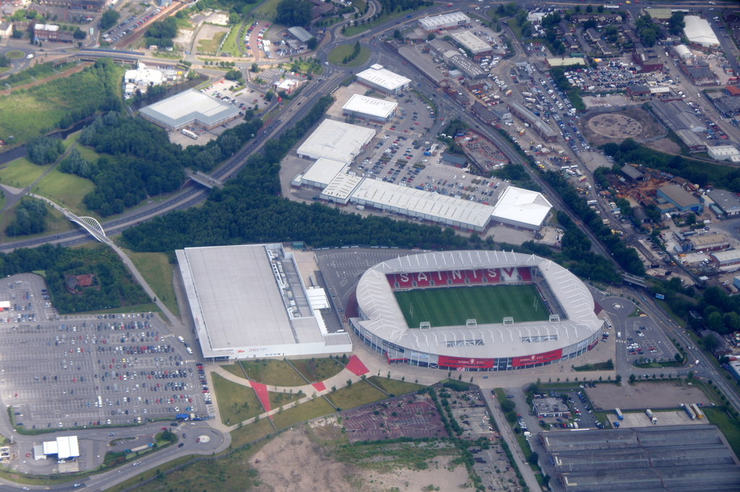
St Helens were formed just a year after Wigan in 1873, but have seen a lot of success over the years. They are one of the founding members of the Northern Rugby Football Union, an accolade that they are very proud of within the club.
Only Wigan have won more championship medals than St Helens, with 17 to their name, seeing the majority of their success within the Super League era. Saints have the most Grand Final victories with nine. They’ve also been dubbed as one of the unluckiest teams in the league as well, losing on five consecutive Grand Final appearances between 2007 and 2011.